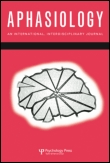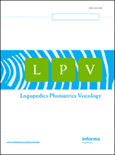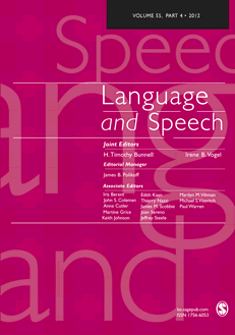
APHASIOLOGY
Scope & Guideline
Exploring Interdisciplinary Insights into Aphasia and Cognition
Introduction
Aims and Scopes
- Aphasia Assessment and Measurement:
Research on various assessment tools and their psychometric properties, including adaptations for different languages and cultures. - Therapeutic Interventions:
Studies examining the efficacy of diverse therapeutic approaches for individuals with aphasia, including traditional speech therapy, technology-assisted interventions, and novel methodologies. - Communication and Quality of Life:
Exploration of how aphasia affects interpersonal communication, relationships, and overall quality of life for individuals and their families. - Neurocognitive Mechanisms:
Investigations into the neural correlates of language processing and recovery in aphasia, informed by neuroimaging and electrophysiological methods. - Bilingualism and Multilingualism:
Research focusing on the implications of bilingualism in aphasia recovery, including language mixing and cross-language transfer. - Qualitative Research:
Qualitative studies exploring the lived experiences of individuals with aphasia and their caregivers, including perspectives on therapy and rehabilitation.
Trending and Emerging
- Telepractice and Digital Interventions:
The increasing use of telepractice and digital tools for aphasia therapy has gained significant attention, especially in the context of remote healthcare delivery post-COVID-19. - Interdisciplinary Approaches:
There is a growing trend towards integrating insights from psychology, neuroscience, and technology to enhance aphasia rehabilitation. - Person-Centered Care:
Research focusing on the needs, values, and preferences of individuals with aphasia and their families is on the rise, emphasizing a more holistic approach to therapy. - Augmentative and Alternative Communication (AAC):
The exploration of AAC methods and technologies is expanding, highlighting their role in supporting communication for individuals with severe aphasia. - Longitudinal Studies and Recovery Trajectories:
An increase in longitudinal studies examining the long-term recovery trajectories of individuals post-stroke is evident, providing insights into the chronic phase of aphasia rehabilitation.
Declining or Waning
- Traditional Linguistic Models:
There is a noticeable decrease in studies strictly adhering to traditional linguistic models without considering the broader psychosocial context of aphasia. - Pharmacological Interventions:
Research on pharmacotherapy for aphasia has diminished, possibly due to a growing emphasis on behavioral and rehabilitative approaches over medical treatments. - Generalized Aphasia Interventions:
There is a waning interest in generalized interventions that do not tailor to specific aphasia types or individual needs, as more personalized approaches gain traction. - Static Assessment Tools:
The use of static assessment tools that do not adapt to the dynamic nature of recovery and rehabilitation in aphasia is becoming less common. - Aphasia-focused Public Awareness Campaigns:
While public awareness of aphasia remains important, fewer studies are dedicated to evaluating the effectiveness of awareness campaigns in recent years.
Similar Journals

PSYCHOLOGIA
Exploring the Depths of Human BehaviorPSYCHOLOGIA is a distinguished academic journal published by the Psychologia Editorial Office, focusing on the broad field of psychology. Originating from Japan, the journal serves as a platform for innovative research and insights into various psychological phenomena, contributing significantly to the advancement of psychological knowledge since its establishment in 1996. With an ISSN of 0033-2852 and an E-ISSN of 1347-5916, PSYCHOLOGIA primarily targets researchers, professionals, and students who are passionate about the intricacies of human behavior and cognition. Currently categorized in the Q4 quartile of psychology (miscellaneous) based on 2023 metrics, it holds a Scopus rank of #157 out of 216, indicating its developing presence within the academic community. Despite being published without open access options, the journal remains committed to fostering scholarly dialogue and disseminating significant findings that shape contemporary psychological research. As it converges towards its issue set for 2024, PSYCHOLOGIA continues to be an essential resource for those seeking to deepen their understanding of psychological sciences.

Speech Language and Hearing
Championing research excellence in linguistics and hearing science.Speech Language and Hearing, published by TAYLOR & FRANCIS LTD, is a premier journal that aims to advance the fields of linguistics, language, speech, and hearing science. With its ISSN 2050-571X and E-ISSN 2050-5728, this journal stands out as a vital resource for researchers, professionals, and students focused on the complexities of communication disorders, therapeutic techniques, and linguistic development. Operating from the United Kingdom, it spans a comprehensive range of topics pertinent to its scope, ensuring that the latest findings and methodologies are shared within the academic community. Its impressive impact is evidenced by its categorization in the 2023 Quartiles, ranking Q1 in Linguistics and Language and Q2 in Speech and Hearing, reflecting its distinguished position in the field. The journal also boasts notable Scopus Ranks, including Rank #192 in Linguistics and Language, respectively placing it in the 83rd percentile, making it a critical platform for high-impact research. Though currently not open access, the journal continually seeks to bridge academic gaps by disseminating vital knowledge that shapes future research endeavors and practical applications in speech and hearing.

BRAIN AND LANGUAGE
Pioneering Research on Language Mechanisms and CognitionBRAIN AND LANGUAGE is a premier journal published by Academic Press Inc Elsevier Science, dedicated to fostering scholarly communication in the fields of Cognitive Neuroscience, Linguistics, Psychology, and Speech and Hearing. With its ISSN 0093-934X (Print) and 1090-2155 (Online), the journal has established a significant presence since its inception in 1974, continuing to provide valuable insights into the intricate relationship between brain function and language processing. This journal is highly regarded, boasting a 2023 ranking of Q1 in Linguistics and Language, reflecting its influential contributions to the field, alongside Q2 rankings in categories such as Cognitive Neuroscience and Experimental Psychology. With a rigorous peer-review process, it serves as an essential resource for researchers and professionals seeking to deepen their understanding of language mechanisms and their cognitive underpinnings. Despite not being an Open Access journal, BRAIN AND LANGUAGE ensures that its articles are widely accessible and of high quality, making it an indispensable platform for both emerging and established scholars aiming to expand the boundaries of research in language and cognition.

JOURNAL OF FLUENCY DISORDERS
Unraveling the science behind fluent communication.JOURNAL OF FLUENCY DISORDERS, published by Elsevier Science Inc, is a pivotal peer-reviewed journal that has been advancing the field of speech and language pathology since its inception in 1974. With a focus on fluency disorders, this journal aims to disseminate high-quality research that deepens understanding and fosters innovation in interventions and therapeutic practices. Renowned for its high Impact Factor and categorized in the Q1 and Q2 quartiles across several academic domains including Linguistics and Language, Speech and Hearing, and Cognitive Neuroscience, it stands as a vital resource for researchers and practitioners alike. The journal features both theoretical and empirical studies, addressing clinical practices, educational approaches, and the underlying cognitive mechanisms of fluency disorders. While it does not offer an open-access option, it remains accessible through institutional subscriptions and individual memberships. By fostering a rich dialogue within the community, the JOURNAL OF FLUENCY DISORDERS serves as a cornerstone for advancing the understanding and treatment of fluency disorders, ultimately improving outcomes for individuals affected by these challenges.

Revista Chilena de Neuropsicologia
Exploring the Frontiers of Neuropsychological ScienceRevista Chilena de Neuropsicología, published by Universidad de la Frontera, serves as a vital platform for the dissemination of research and advancements in the field of neuropsychology. This peer-reviewed journal aims to foster scholarly dialogue among researchers, professionals, and students, providing insights into the neuropsychological implications of various conditions and therapeutic interventions. By emphasizing high-quality, evidence-based studies, the journal significantly contributes to the understanding and treatment of neuropsychological disorders. While currently not an open-access platform, the Revista Chilena de Neuropsicología remains committed to enhancing the visibility and impact of neuropsychological research in Latin America and beyond. Researchers seeking to publish their findings will find it a reputable outlet to share transformative work that drives future studies and clinical practices.

Logopedics Phoniatrics Vocology
Celebrating Interdisciplinary Approaches in VocologyLogopedics Phoniatrics Vocology, the distinguished journal published by TAYLOR & FRANCIS LTD, serves as a pivotal platform for the dissemination of research and clinical advancements in the intricate fields of speech, language, and communication sciences. With an ISSN of 1401-5439 and an E-ISSN of 1651-2022, this journal has gained recognition since its inception in 1991, reflecting its commitment to fostering scholarly dialogue until 2024. Ranked in the Q2 and Q3 quartiles across diverse categories such as Arts and Humanities, Medicine, and Speech and Hearing, it showcases a reputable standing, particularly with a 73rd percentile rank in Arts and Humanities. Although currently not an open-access publication, it offers vital insights and empirical research that are crucial for researchers, clinicians, and students in the field, positioning itself as an essential resource for those dedicated to improving communication health. Based in the United Kingdom, at 2-4 PARK SQUARE, MILTON PARK, ABINGDON OR14 4RN, OXON, ENGLAND, the journal invites contributions that explore interdisciplinary approaches and innovative practices in logopedics and related realms.

Neurobiology of Language
Unraveling the mysteries of language through a neurobiological lens.Neurobiology of Language, published by MIT Press, is a premier scholarly journal dedicated to pioneering research at the intersection of linguistics and neuroscience. As part of the prestigious Q1 quartile in both Linguistics and Neurology, this journal not only ranks in the top tier of its fields—placing 41st out of 1167 in Linguistics and 57th out of 192 in Neurology according to Scopus—but also serves as a vital platform for innovative studies that explore the complexities of language from a neurobiological perspective. Though offered under a traditional subscription model, the journal ensures accessibility to groundbreaking research that is crucial for advancing our understanding of how language is processed and represented in the brain. With a focus on works produced between 2020 and 2024, the Neurobiology of Language is committed to disseminating influential and transformative research that shapes the future of cognitive science, language development, and neuropsychology, making it an essential resource for researchers, professionals, and students alike.

CoDAS
Empowering research, bridging theory and practice in communication disorders.CoDAS, an esteemed academic journal published by the SOC BRASILEIRA FONOAUDIOLOGIA, serves as a leading platform for interdisciplinary research within the realms of linguistics, speech, and hearing sciences. Established as an Open Access journal in 2013, it ensures broad dissemination and accessibility of scholarly work, significantly benefitting researchers, clinicians, and students alike. Based in Brazil, CoDAS has garnered credibility with its impressive Q2 ranking in Linguistics and Language, as well as its rankings in Otorhinolaryngology and Speech and Hearing categories, reflecting its substantial contribution to these fields. The journal's impact is underscored by its robust Scopus rankings, including the 67th percentile in Language and Linguistics. With a commitment to fostering innovative research and bridging gaps between theory and practice, CoDAS continues to play a vital role in advancing knowledge and clinical practices in communication disorders and auditory sciences.

LANGUAGE AND SPEECH
Bridging Knowledge Gaps in Language and CommunicationLANGUAGE AND SPEECH, published by SAGE PUBLICATIONS LTD, is a premier journal that serves the multifaceted realms of linguistics, speech science, and sociology. With a robust history of scholarly contribution since 1958 and an anticipated continuation through to 2024, the journal is recognized for its high-impact research, boasting a commendable impact factor and achieving Q1 ranking in both Linguistics and Sociology as well as Q2 in Medicine and Speech and Hearing categories as of 2023. The journal, available in both print and online formats with ISSN 0023-8309 and E-ISSN 1756-6053, provides a vital platform for interdisciplinary discourse among researchers, professionals, and students alike. Its rigorous review process and quality publications place it at the forefront of academic inquiry, offering critical insights that advance the understanding of language and its implications in various contexts. As a key resource in the field, LANGUAGE AND SPEECH continues to foster innovation and knowledge dissemination, making it an essential addition to the libraries of those committed to exploring the depths of communication sciences.

Dementia and Geriatric Cognitive Disorders Extra
Exploring innovative research in geriatric neuroscience.Dementia and Geriatric Cognitive Disorders Extra, published by KARGER in Switzerland, is an esteemed open-access journal dedicated to advancing research in the fields of cognitive neuroscience, geriatrics, and psychiatry. With a commitment to disseminating high-quality research since its inception in 2011, the journal plays a crucial role in highlighting innovative studies that address cognitive disorders associated with aging. As an open-access platform, it ensures that findings are accessible to a global audience, fostering collaboration and knowledge-sharing among researchers, professionals, and students alike. The journal has been recognized for its impact in Cognitive Neuroscience and Psychiatry and Mental Health, achieving a Q3 category ranking, indicating its reputable standing within these fields. By delivering cutting-edge insights and promoting interdisciplinary approaches, Dementia and Geriatric Cognitive Disorders Extra is instrumental in enhancing understanding and treatment of cognitive decline, making it a vital resource for anyone engaged in the study of aging and cognitive health.